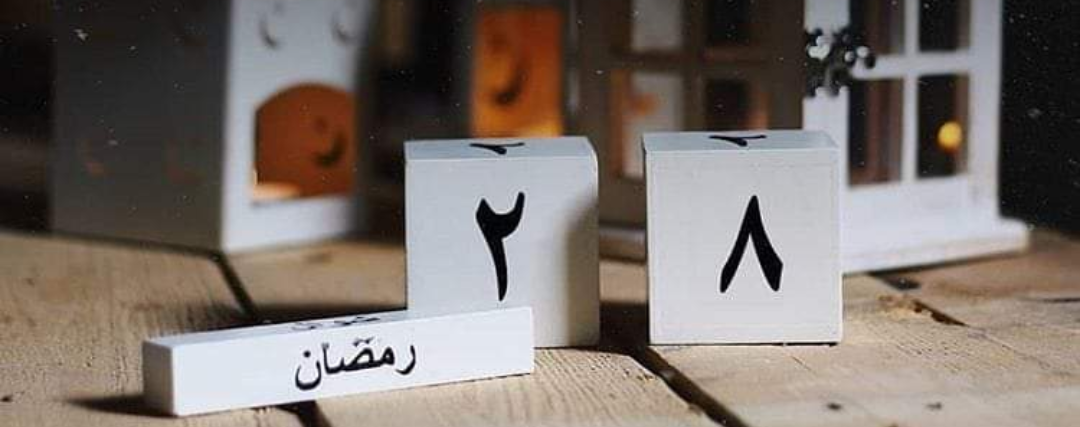Those Whom it is Forbidden to Marry
Question :
Allah, Most High says, in Surah An-Nisa':
"And marry not women whom your fathers married, except what has already passed; indeed it was shameful and most hateful, and an evil way.
- up to the Words of Him, Most High:
"and two sisters in wedlock at the same time, except for what has already passed; verily, Allah is Oft-Forgiving, Most Merciful.
What does this mean?
Answer:
In these Noble Verses, Allah, the Almighty, the All- Powerful explains those whom it is forbidden to marry; and the reasons for the prohibition in these Verses are attributable to three things:
1. The lineage;
2. Foster relationships (i.e., through suckling);
3. Relationship by marriage.
So the Words of Allah, Most High
"And marry not women whom your fathers married, except what has already passed;"
inform us that it is not permissible for a person to marry those women whom his father, his grandfather, or his antecedents have married, regardless of whether it was the grandfather from the mother's side or from the father's side, and whether he had had sexual relations with her or not.
So if a man makes a proper marriage contract with a woman, she
is forbidden to his sons, the sons of his sons, and the sons of his daughters, or their descendants.
And in the Words of Him, Most High:
"Forbidden to you (for marriage) are: your mothers, your daughters, your sisters, your father's sisters, your mother's sisters, your brother's daughters, your sister's daughters.
there is an explanation of prohibitions based upon lineage and they are seven: (1) The mothers, and their ancestors from the grandmothers, on the father's side or from the mother's; (2) and the daughters and their descendants from the daughters of their son, or from their daughters' daughters and their descendants; (3) and the sisters, whether they be full sisters, half-sisters of the father or the mother; (4) and the paternal aunts, who are the fathers' sisters, the grandfathers' sisters and their antecedents, whether they are full paternal aunts, aunts on the father's side or the mother's side. The full paternal aunts are sisters of your father from his mother and father and the paternal aunts from his father's side are his sisters from his father, while the paternal aunts from the mother's side are the sisters from the mother. (5) The maternal aunts are the sisters of the mother, and the grandmother, and their antecedents, whether they are full aunts, or from the father's side or the mother's side. The full maternal aunts are the sisters of your mother from her mother and father, while the maternal aunts on the father's side are her sisters from her father and the maternal aunts on the mother's side are sisters of the mother.
And you should know that every person's maternal aunt or paternal aunt is a maternal aunt or a paternal aunt for him and for his descendants. Therefore, the paternal aunt of your father is your paternal aunt and the maternal aunt of your father is your maternal aunt. Similarly, the paternal aunt of your mother is your paternal aunt and the maternal aunt of your mother is your maternal aunt. Likewise, the paternal aunts of your grandfathers and grandmothers are your paternal aunts, and the maternal aunts of your grandfathers and grandmothers are your maternal aunts; (6) and the brother's daughters and their descendants, whether he is a full brother, or a brother on the mother's side or the father's side, she is forbidden to you, and her granddaughter is forbidden to you, and the daughter of her son is forbidden to you, as are her descendants; (7) and the same applies to the daughters of the sister. Those seven are from the lineage
"Forbidden to you (for marriage) are: your mothers, your daughters, your sisters, your father's sisters, your mother's sisters, your brother's daughters, your sister's daughters."
And if you wish to include them all, then say: It is forbidden for a person to marry women from the direct line of the parents and their descendants and from the children and their descendants, and from the offspring of the father and the mother and from the descendants of the grandfather and the grandmother, especially for their offspring.
And in the Words of Allah, Most High:
"Your foster mothers who suckled you, your foster milk suckling sisters."
is an indication of what is forbidden due to foster relationships; and the Prophet said:
"What is unlawful by reason of lineage is unlawful by reason of fostering." So those whom it is forbidden to marry due to lineage, it is forbidden to marry their like among the foster relations, and they are: The mothers, the daughters, the sisters, the paternal aunts, the maternal aunts, the brother's daughters and the sister's daughters. So their like among the foster relations are forbidden, according to the words of the Prophet:
"What is fostering."
unlawful by reason of lineage is unlawful by reason of And the Words of Allah, Most High:
"Your wives' mothers, your stepdaughters under your guardian- ship, horn of your wives unto whom you have gone in but there is no sin on you if you have not gone in unto them (to marry their daughters), the wives of your sons who (spring) from your own loins."
These three are forbidden due to relationship by marriage and: "The mothers of your women" means that it is forbidden for a man to marry his wife's mother, her grandmother and their antecedents, whether it is from the father's side or the mother's side and they are forbidden to him simply by the marriage contract.
So if a man makes a contract with a woman, her mother is forbidden to him and he becomes a Marham for her, even if he did not have sex with her that is, even if he did not have sex with the girl. So if it happened that the girl died or he divorced her, he would be a Marham for her mother. And if it happened that he delayed having sex with the woman he had married, he becomes a Marham for her mother and she may uncover her face before him, and he may travel with her and be alone with her, and there is no sin in this, because the wife's mother and her grandmother are forbidden simply due to the marriage contract, according to the generality of the Words of Him, Most High:
"Your wives" mothers."
and the woman is included among the women of the husband simply by the contract.
And His words: "your stepdaughters under your guardianship, born of your wives unto whom you have gone in. "
- What is meant by this is the daughters of the wife, her children's daughters, and their descendants. So when a person marries a woman, her daughters from another man are forbidden to him and are among those he is a Mahram for; likewise the daughters of her sons and daughters; so her son's daughter and her daughter's daughter are like her daughter, but Allah, the Almighty, the All-Powerful has imposed two condi- tions here:
"Your stepdaughters under your guardianship, born of your wives unto whom you have gone in."
So He has imposed a condition regarding the forbiddance of the step-daughter, which is that she be under a person's guardianship. And He has imposed another condition, which is that he has entered upon her mother, that is, had sexual intercourse with her.
As for the first condition, it is, according to the majority of the scholars, general and not to be understood from the Verse, which is why they said that the daughter of the wife with whom the husband has had sexual intercourse is forbidden to him, even if she is not under his guardianship.
As for the second condition, which is the Words of Him, Most High:
"unto whom you have gone in"
- it is an intended condition, which is why Allah, Most High mentioned what is understood by it, but He did not mention what is understood by His Words:
"unto whom you have gone in"
which proves that His Words:
"under your guardianship,"
are not to be taken literally.
As for His Words:
"under your guardianship,"
" unto whom you have gone in"
Allah has taken into account its mearting, because He says:
"but there is no sin on you if you have not gone in unto them (to marry their daughters),"
As for His Words:
"the wives of your sons who (spring) from your own loins,"
what is meant by that is that the son's wife and her descendants are forbidden to his father, simply due to the marriage contract, and the wife of the grandson is forbidden to his grandfather, simply due to the contract. Therefore, if a person makes a lawful contract with a woman, then divorces her, she immediately becomes forbidden to his father and his grandfather and their antecedents, according to the generality of the Words of Allah, Most High:
"the wives of your sons who (spring) from your own loins."
-and the woman becomes a wife to her husband simply by the contract.
These three causes necessitate forbiddance: Lineage, fostering (i.e., suckling) and relationships by marriage. Those forbidden due to lineage are seven and those forbidden due to fostering are the same as those forbidden due to lineage, according to the saying of the Prophet:
"What is unlawful by reason of lineage is unlawful by reason of fostering".
And those forbidden due to relationships by marriage are four mentioned in the Words of Allah, Most High:
"And marry not women whom your fathers married, and the Words of Him, Most High:
"your wives" mothers, your stepdaughters under your guardian-ship, born of your wives unto whom you have gone in"
The fourth is in the Words of Him, Most High:
"the wives of your sons who (spring) from your own loins."
As for the Words of Him, Most High:
"and two sisters in wedlock at the same time"
- this prohibition is not a permanent prohibition, because the prohibition is of being married to them at the same time, so the wife's sister is not forbidden to the husband, but it is forbidden for him to be married to her and to her sister, which is why Allah, Most High says:
"and two sisters in wedlock at the same time."
and He does not say: "the sisters of your women."
Therefore, if a man was irrevocably divorced from his wife by the completion of the waiting period, then he may marry her sister, because what is forbidden is to marry two sisters at the same time; so it is forbidden to marry a woman and her paternal aunt together, or a woman and her maternal aunt, as has been confirmed in the Hadith from the Messenger of Allah. So those whom it is forbidden to marry at the same time are three: Two sisters, a woman and her paternal aunt and a woman and her maternal aunt. As for the daughters of the paternal aunt and the maternal aunt, that is, if a woman is another daughter of a paternal uncle or another daughter of a maternal uncle, it is permissible to marry them both.
Source:
Ibn 'Uthaimin
Fatawa Islamiyah, Vol. 5 Pages from 211 to 219
 أرسلها على تطبيق الواتساب
أرسلها على تطبيق الواتساب 
